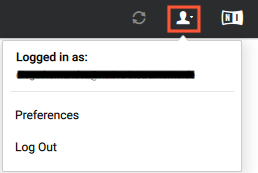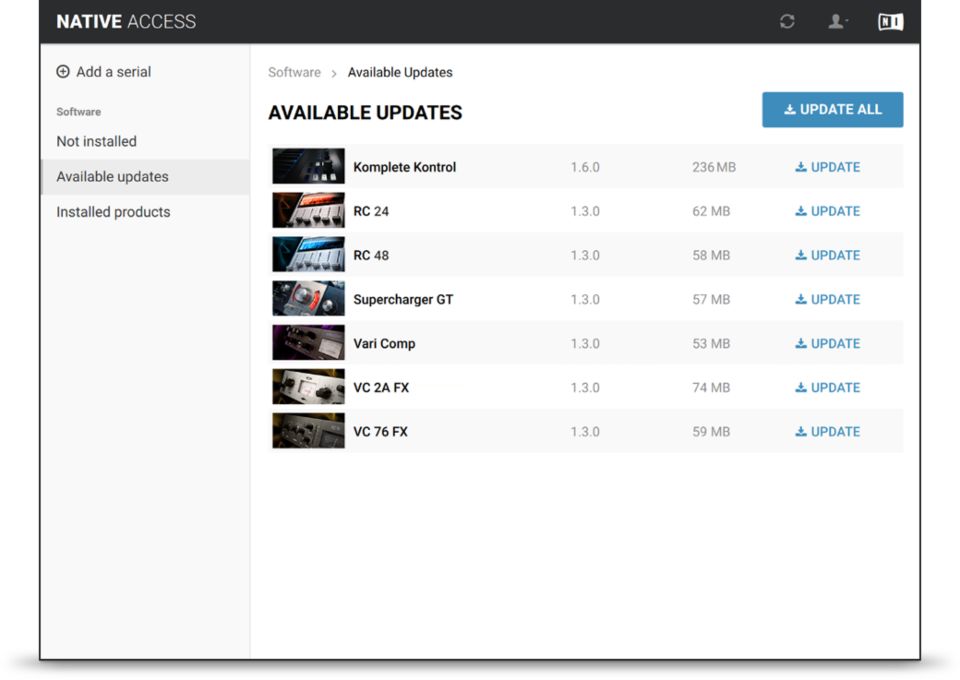Native Access
Native Access The seed varieties shown below are currently available to members of Native American communities only, and can be accessed through the Native American Seed Request, Partner Farmer Program, Community Seed Grants or rematriation programs. Click on the user icon to access the Native Access Preferences. Before installing your products, verify all File locations to ensure that all your NI applications and content products will be installed in the desired locations. Read this article (or video) to learn more about defining installation paths under File locations. NATIVE Access, 120 records found, first 100 of them are: Native Instruments FM8. Native Instruments Traktor Dj Studio 3.0.0.41. Native Instruments Guitar Rig 2.01. I can't open Native Access on Windows 10, either. I'm getting the 'download failed' message that has also been an issue in the past, even after uninstalling and reinstalling the latest version. Installing and running Native Access as admin didn't work for me, either. Click on the user icon to access the Native Access Preferences. Before installing your products, verify all File locations to ensure that all your NI applications and content products will be installed in the desired locations. Read this article (or video) to learn more about defining installation paths under File locations.
- Native Access Won't Open
- Native Access Ni
- Native Access Searching For The Latest Update
- Native Instruments Native Access
- Native Access Install Failed
Mental Health America works nationally and locally to raise awareness about mental health and ensures that those at-risk for mental illnesses and related disorders receive proper, timely and effective treatment. MHA incorporates culturally competent strategies to ensure that it is effectively addressing the treatment and psychosocial needs of consumers and families with diverse values, beliefs, sexual orientations, and backgrounds that vary by race, ethnicity and/or language.
Demographics/Societal Issues
- Approximately 1.3 percent of the U.S. population, or roughly 4.2 million Americans, identify themselves as having Native American or Alaska Native heritage. [1]
- There are 573 federally recognized Native tribes and Native/Indigenous people in America speak more than 200 indigenous languages. [2][3]
- Most Native/Indigenous people in American live in Mid-West or Western states. About two-thirds now live in urban, suburban, or rural non-reservation areas; about one-third live on reservations. [3]
- Compared to the total U.S. population (14.7 percent), nearly twice as many Native/Indigenous people in America live in poverty (26.6 percent). In 2013, Native/Indigenous people were nearly twice as likely as whites to be unemployed. [3] [4]
Cultural Factors
- Many Native/Indigenous tribes embrace a worldview that encompasses the notions of connectedness (with the past and with others), strong family bonds, adaptability, oneness with nature, wisdom of elders, meaningful traditions and strong spirit that may serve as protective factors when it comes to mental health. [3]
Prevalence
Native Access Won't Open
- Native/Indigenous people in America report experiencing serious psychological distress 2.5 times more than the general population over a month’s time. [5]
- Although overall suicide rates are similar to those of whites, there are significant differences among certain age groups. The suicide death rate for Native/Indigenous people in America between the ages of 15-19 is more than double that of non-Hispanic whites. [6]
- Native/Indigenous people in America start to use and abuse alcohol and other drugs at younger ages, and at higher rates, than all other ethnic groups. [3]
Treatment Issues
Native Access Ni
- The concept of mental illness and beliefs about why and how it develops have many different meanings and interpretations among Native/Indigenous people. Physical complaints and psychological concerns are not distinguished, and Native/Indigenous people may express emotional distress in ways that are not consistent with standard diagnostic categories.
- Native/Indigenous people who meet the criteria for depression, anxiety, or substance abuse disorders are much more likely to seek help from a spiritual and/or traditional healer than from specialty or other medical sources. [3]
- Due to high levels of poverty, many Native/Indigenous people in America face economic barriers that prevent them from receiving treatment. [3]
- Lack of awareness about mental health issues and services that are available and a lack of programs and providers that are sensitive to native and indigenous culture can prevent Native/Indigenous people from receiving treatment. [3]
Access/Insurance
- Access to mental health services is severely limited by the rural, isolated location of many Native/Indigenous communities. Additionally, access is limited because most clinics and hospitals of the Indian Health Service are located on reservations, yet the majority of Native/Indigenous people in America live outside of tribal areas.[7]
- Compared to non-Hispanic whites, nearly 3 times as many Native/Indigenous people had no health insurance – 5.9 percent compared to 14.9 percent. Approximately 43 percent of Native/Indigenous people in America rely on the Medicaid or public coverage. [7]
Native Access Searching For The Latest Update
Mental Health Resources for Native and Indigenous Communities
- Indigenous Story Studio: creates illustrations, posters, videos, and comic books on health and social issues for youth (Canada-based)
- Strength of the Sash and Tomorrow’s Hope: suicide prevention
- Making it Right: community justice, policing
- Just a Story: mental health stigma
- One Sky Center: The American Indian/Alaska Native National Resource Center for Health, Education, and Research; mission is to improve prevention and treatment of mental health and substance use problems and services among Native people
- Presentations and Publications: number of downloadable resources by topic (addiction treatment, adolescents, crisis care & disaster management, disparity of health services, mental health management, and more)
- WeRNative: a comprehensive health resource for Native youth by Native youth, promoting holistic health and positive growth in local communities and nation at large
- My Culture – Wellness and Healing, Identity
- My Life – My Mind – Mental Health Difficulties, Improve Your Mood, Getting Help, and more (including specific MH issues)
- My Relationships – Unhealthy Relationships, Communicating, LGBT – Two Spirit
- Ask Auntie: similar to advice column – type in your question and it will pull up similar ones; if none answer what you’re asking, Auntie Amanda will write up an answer and notify you when it is posted
- StrongHearts Native Helpline: The StrongHearts Native Helpline (1-844-762-8483) is a confidential and anonymous culturally-appropriate domestic violence and dating violence helpline for Native Americans, available every day from 7 a.m. to 10 p.m. CT.
Partnerships and Resources

Sources
Native Instruments Native Access
(1) United States Census Bureau. Quick facts. Retrieved 6/8/2020 from https://www.census.gov/quickfacts/table/PST120215/00
(2) Indian Health Service. (2019). https://www.ihs.gov/newsroom/factsheets/disparities/#:~:text=American percent20Indians percent20and percent20Alaska percent20Natives percent20continue percent20to percent20die percent20at percent20higher,and percent20chronic percent20lower percent20respiratory percent20diseases.
Native Access Install Failed
(3) American Psychiatric Association. (2017). Mental health disparities: American Indians and Alaska Natives. https://www.psychiatry.org/File percent20Library/Psychiatrists/Cultural-Competency/Mental-Health-Disparities/Mental-Health-Facts-for-American-Indian-Alaska-Natives.pdf

(4) Austin, A. (2013). High unemployment means Native Americans are still waiting for an economic recovery. Economic Policy Institute. Retrieved from http://www.epi.org/publication/high-unemployment-means-native-americans/
(5) CDC. (2018). Health United States, 2017. Table 46. http://www.cdc.gov/nchs/data/hus/hus17.pdf
(6) CDC, 2019. National Center for Injury Prevention and Control. Web Based Injury Statistics Query and Reporting System (WISQARS). https://www.cdc.gov/injury/wisqars/index.html
(7) HHS Office of Minority Health. Profile: American Indian/Alaska Native. https://www.minorityhealth.hhs.gov/omh/browse.aspx?lvl=3&lvlid=62
